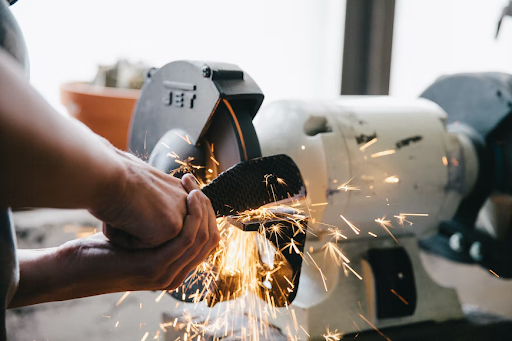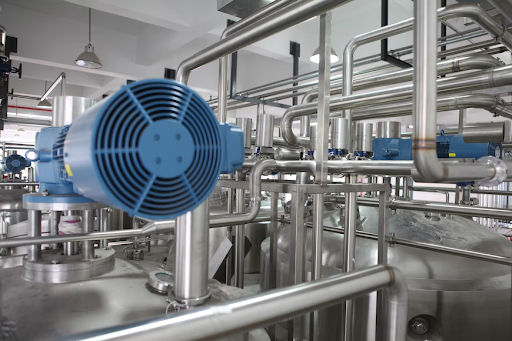5 Ways to Make Your Manufacturing Process More Efficient
Handling a bunch of employees working on the manufacturing floor is no simple task. Even if you streamline all the processes and provide the right guidance, we still can’t neglect the human factor. Fatigue, discipline, and work ethic are just a few things you should be wary of. As if that wasn’t enough, the management has to consider the use and maintenance of heavy machinery. Small mistakes on the floor can cost employees their limbs while potentially leading to lawsuits. Such situations are devastating for everyone involved, causing major stress and discord within the team. Luckily, there are ways you can improve efficiency while making the manufacturing plant a safer place. In this article, we’ll share 5 ways to make your manufacturing process more efficient. Enjoy!
1. Optimize your workflow
As a manager, your main task is to constantly look for ways to increase efficiency, improve time management, and minimize errors. Now, you don’t have to be a tyrant and reduce workers’ rest time, but you should still find ways to motivate the team. When assessing your workflow, you should focus on workers’ performance and process efficiency. Truth be told, you’ll never achieve high efficiency if you have bad hiring practices. Everything starts with workers and their skills, and the best solution is to hire top experts in the field. Also, you should pay close attention to bottlenecks. Nowadays, manufacturing companies use software to analyze their processes and optimize them. We suggest you apply this practice to all departments, not just workers on the production floor.
2. Upgrade the technology
The technology field has become global and, thus, extremely competitive. Revolutionary manufacturing machines produced in China hit the American market in just a few weeks, becoming accessible to local consumers. There’s always some better solution available, and you can never invest enough in upgrades. Now, this doesn’t necessarily mean you should replace old machinery and software just to get a few extra features. However, if there’s a new revolutionary product on the market, it makes sense to buy it. This is something you’ll have to do either way and by reacting quickly, you’ll get a temporary advantage over the competition.
3. Reduce repair and replacement time
The scariest thing for manufacturers is when a piece of machinery breaks down. As your workers start twiddling their thumbs, you’ll start assessing the cost of downtime. And trust us when we say it’s never pretty! The best way to avoid mishaps is to perform scheduled maintenance according to the producer’s specifications. Although preventative maintenance can be annoying as it takes time to conduct, it beats production stoppages. Furthermore, periodic repairs will help you squeeze the most use out of your equipment. If you wish to further increase efficiency and prevent potential downtimes, we suggest that you keep spare parts nearby. Aside from regular items such as springs, shims, and couplings, you should have specialized components such as valve assemblies, custom metal stamping parts, and injection-molded parts in your inventory.
4. Improve the environment
Plant management should make constant strides to improve the workplace. Aside from increasing production speed, there are a few other tangible benefits to this mindset. First and foremost, the floor manager needs to ensure there’s no waste or tool lying around. Not only do they represent a hazard for employees, but they also make necessary clutter. Also, a person looking for a specific tool might not find it in the usual place, causing more time wasting. However, we also shouldn’t neglect the human factor. Having a clean and neat environment can also improve workers’ efficiency and reduce stress. Depending on the type of business you’re running and the plant layout, you can add various interior solutions to make the compound livelier. Lastly, adding extra light, guard rails, and fire extinguishers can improve workplace safety.
5. Spend money on training
Some employees perceive training as a necessary evil. Most people are used to their daily routine and don’t want to exit that comfortable bubble. However, there are a few tangible benefits to training for both the company and workers. Additional training is one of the better ways to increase floor efficiency. This is especially true for complex tasks. It’s also fantastic for companies that are continuously innovating and introducing new machinery to their premises. But training can also present a developmental opportunity for employees. Your workers can gain new skills, which they can employ in your (or some other) company. Among others, specializing in a particular field or cross-specializing opens new and better job opportunities.


